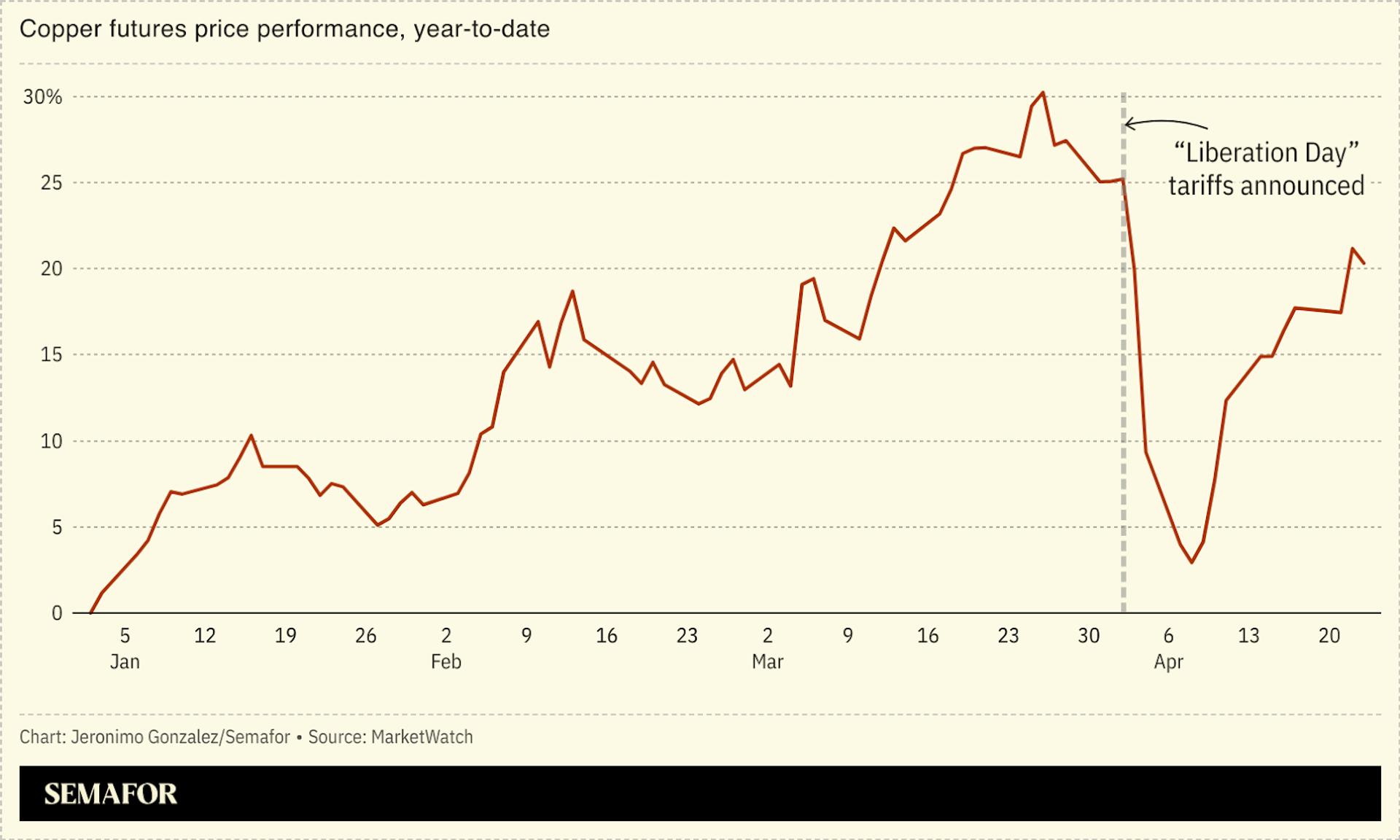The Scoop
Tariffs that the US is planning to potentially impose within weeks on imports of copper won’t help speed up domestic mining, the CEO of the world’s largest mining company and copper producer told Semafor.
Speaking at Semafor’s World Economy Summit, BHP boss Mike Henry said permitting delays and red tape are still the main constraints on new mines in the US. President Donald Trump has threatened to impose a tariff of up to 25% on copper imports, as a way to cut US reliance on imports, primarily from Latin America. But for a mining project that will operate for decades and cost billions of dollars, tariffs don’t offer enough security to be the basis for an investment decision, Henry said: “It’s a vexed question. Trying to do that on the back of an executive order tariff can be hard. There’s not enough certainty.”
In this article:
Tim’s view
Demand for copper — a critical component for transmission lines, batteries, motors, and other energy transition hardware, as well as for data centers — is rising much faster than supply, and US production lags significantly behind Chile, DR Congo, China, and others. That makes copper a major vulnerability for US energy and AI ambitions. The tightening market is already driving copper prices to near-record highs, which will soar even higher in the US if tariffs do take effect. But for a company like BHP, there’s no quick and easy way to seize that market.

Henry, who has led the mining giant since 2020 and is rumored to be stepping down soon, has made a pivot to copper a signature part of his legacy: Under his leadership, BHP sold its oil and gas business and much of its coal mining operations in the interest of focusing more tightly on copper. But scaling up the copper business hasn’t been easy. A $52 billion bid last year to acquire rival miner Anglo American didn’t pan out. And a major new mine BHP is developing in Arizona as a joint venture with Rio Tinto has faced legal challenges, opposition from local Indigenous rights groups, and slow permitting. The Trump administration did nudge that process forward last week, but Henry said the mine is still at least five years away from a final investment decision.
Henry didn’t explicitly rule out another stab at Anglo, but said he was wary of big mega-mergers, which have historically been a great way for mining companies “to lose a lot of shareholder capital.” Instead, he’s pushing the company to increase its spending on exploration of untapped copper deposits around the world, and picking up the occasional smaller rival, most recently in Argentina.
The global trade war could hurt BHP’s copper ambitions: Rising inflation in the US could cut into copper demand from automakers and other key customers, and US tariffs on copper could provoke retaliatory moves from Chile, further cutting into demand. An economic slowdown in China, the world’s top copper consumer, would also be a big setback, but Henry said for now he’s not too worried about that.
“There are well-publicized headwinds on the economic front in China,” he said, “but the sectors that are very metals-intensive — infrastructure, manufacturing, automobiles — they’ve continued to perform quite strongly.”
Notable
- Oilfield services companies are bracing for the impact of tariffs. Baker Hughes and Halliburton reported that they expect lower profits this year on the back of higher steel prices and lower oil demand.

